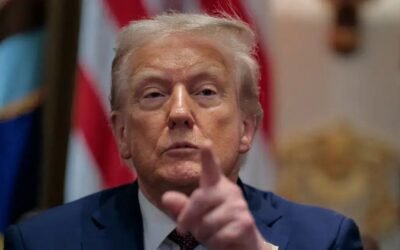The 25th EU-China summit is underway in Beijing, marking 50 years of diplomatic relations between Brussels and Beijing. This high-stakes meeting, which began on Thursday, July 24, 2025, is expected to last for one day, focusing on salvaging strained relations and exploring areas of cooperation amidst deepening rifts.
Key Participants
The summit sees top officials from both sides engaging in crucial discussions. Representing the European Union are European Commission President Ursula von der Leyen and European Council President Antonio Costa. They are meeting with Chinese President Xi Jinping and Premier Li Qiang.
Agendas and Objectives of the Summit
The summit’s agenda is packed with a range of complex issues, reflecting the multifaceted nature of the EU-China relationship. Both sides have distinct objectives:
For the European Union
Addressing Trade Imbalances and Unfair Practices
The EU is deeply concerned about its growing trade deficit with China, which doubled between 2015 and 2024 to reach 305.8 billion euros ($359bn) last year. Brussels seeks to secure concrete concessions from China on ensuring reliable access to rare earths and critical minerals through unrestricted export licenses and to promote a more level playing field in trade by demanding greater market access reciprocity for EU companies and fairer treatment under China’s regulatory framework. The EU also aims to counter China’s industrial overcapacity and the “dumping” of cheap, state-subsidized exports on the European market.

Source: Al Jazeera
Human Rights
The EU will raise concerns about human rights concerns in the regions of Tibet, Xinjiang, and Hong Kong.
Russia-Ukraine War
A significant point of contention is China’s close relationship with Russia in the context of the war in Ukraine. The EU expects to address this, viewing it as fundamental to European security.
Strategic Autonomy
The summit is an opportunity for Europe to affirm its own geopolitical position vis-à-vis China, particularly at a moment when US policy appears unpredictable.
For China
Market Access and Trade De-escalation
Beijing desperately needs Europe to keep its markets open to China’s electric vehicles (EVs) and other goods produced at overcapacity, especially as the United States and other major markets are closing their doors. China seeks assurances that Europe will not side with the US against China or adopt overly stringent protectionist policies like EV tariffs.

Source: Atlantic Council
Softening Trade Defenses
Beijing aims to persuade European leaders to revive the previously abandoned Comprehensive Agreement on Investments, rescind EU sanctions and tariffs targeting Chinese EVs and solar products, and delay other measures against industrial overcapacity and state subsidies.
Strategic Alignment
Beijing has previously endorsed the concept of EU strategic autonomy, aiming to drive a wedge between the EU and the United States and weaken transatlantic economic and security relations. Beijing seeks to position the EU as a partner while casting the United States as unreliable.
Rebranding and Multilateralism
Beijing is working to rebrand itself in Europe as a responsible global actor committed to multilateralism and climate cooperation, while downplaying criticism over its alignment with Russia and human rights abuses.
Achievements So Far
While expectations for major political agreements are low due to persistent differences, there are signals of potential “achievable wins” and continued dialogue.
Dialogue Resuscitation
China lifted sanctions on some members of the European Parliament in April, a goodwill gesture aimed at improving relations and hinting at resuming political dialogues between the European Parliament and the National People’s Congress.

Source: Al Jazeera
Climate Cooperation
Sources suggest the EU and China plan a joint statement on climate change, indicating a potential area of common ground despite broader tensions.
Commitment to Multilateralism
Chinese President Xi Jinping emphasized the need for China and the EU to strengthen communication, enhance mutual trust, and deepen cooperation to provide more stability and certainty for the world through steady, sound bilateral relations, highlighting their shared role as constructive forces for multilateralism, openness and cooperation. The Chinese News Outlet, Rthk, reported:
President Xi Jinping urged China and the EU to enhance stability and certainty in the world through strong China-EU relations at the 25th China-EU Summit in Beijing. Marking the 50th anniversary of China-EU ties and the 80th anniversary of the UN, Xi emphasized mutual respect, common ground, openness, cooperation, and mutual benefit as key principles for the relationship. He called for vision and leadership from both sides amidst global transformation, stressing the importance of communication, trust, and cooperation to navigate international challenges. Xi expressed hope for a brighter future for China-EU relations.
Future Possibilities
The summit’s outcome will significantly influence the future trajectory of EU-China relations:
Limited Progress on Trade
While a major breakthrough on the trade imbalance is unlikely, there’s a possibility of conditional rare earth export assurances from China to ease EU industrial pain and compromises that might soften EV tariffs in exchange for China scrapping tariffs on European products like cognac, dairy, and pork.
Continued Divergence
Deep-seated differences on human rights, China’s stance on the Ukraine ward, and geopolitical competition are expected to persist, limiting the scope for substantial cooperation.
Strategic Competition
Both the EU and China are striving to position themselves as independent global powers, and this dynamic could lead to continued competition rather than deep collaboration, particularly as US foreign policy under a new administration remains unpredictable.
Impact on Global Stability
The relationship between these two major global players has direct implications for the management of global challenges and the stability of the multilateral system. The summit aims to at least keep communication channels open.
Political Ramifications
The summit takes place as the EU faces intense trade pressure from both Beijing and the United States, with a potential transatlantic trade war looming.
Potential for Further Sanctions and Retaliation
The EU’s recent sanctions on Chinese banks and companies over their ties with Russia, and China’s threat of countermeasures, indicate a fragile economic relationship that could further escalate if no common ground is found.
Conclusion
The current summit underscores the complex and often contradictory nature of the EU-China relationship. While both sides seek stability and some areas of cooperation, significant disagreements and geopolitical realities continue to shape their interactions. The outcome will likely set the tone for their engagement in a turbulent global landscape.




























